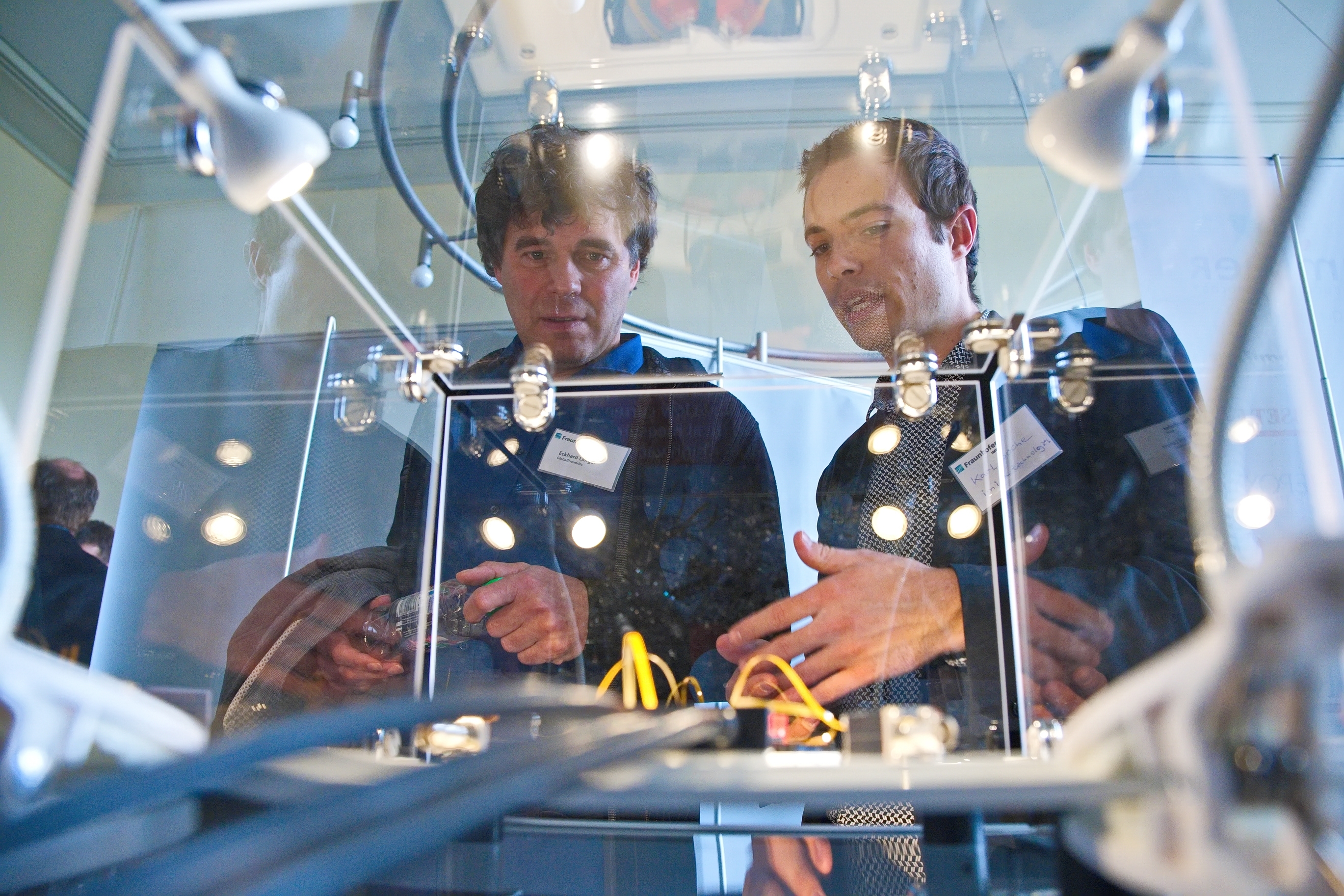150 international experts at CAM workshop in Halle
Over 150 international experts from 14 countries, around two-thirds of whom are from industry, came together on April 26th/27th at the Fraunhofer Center for Applied Microstructure Diagnostics CAM at the Fraunhofer Institute for Microstructure of Materials and Systems in Halle (Saale). They discussed new microstructure diagnostic methods to ensure the reliability of microelectronic components. At the same time, the first results from the European research project SAM³ were presented on innovative fault analysis procedures for highly integrated electronic systems.
Within this project, Fraunhofer CAM has been working since October 2015 with companies such as Infineon, Bosch, STMicroelectronics, Thales, and other partners from France and Germany on new methods and techniques for diagnostics involving highly integrated ‘system-in-package’ components. These components combine various functions in a single chip carrier with the aid of modern 3D assembly and interconnection techniques. Securing the reliability of such modern, high-performance ‘More-than-Moore’ (MtM) electronic systems places huge demands on quality assurance and the microstructure diagnostics required for this by combining various materials, chip components, and interconnection techniques.
The system and semiconductor manufacturers, measuring technology providers, and research institutes involved want to accelerate fault localization, fault preparation and diagnostics, such as through enhanced ultrasonic microscopy procedures, new laser-based methods to uncover defects, and improved scanning probe microscopy, during the project. This is funded by the EU and German Federal Ministry of Education and Research and totals 10.7 million euros.
During the CAM workshop, new applications for high-resolution acoustic microscopy procedures based on analyzing ultrasonic wave propagation were, for instance, presented for fault localization in electronic components. A prototype for a nanoprobing system with integrated EBAC amplifier was also presented. This method allows the smallest leakage currents in the transistor structures of highly integrated switches to be measured with the utmost precision and directly mapped using electron microscopic procedures. Precise preparation techniques are also important for failure analysis in complex electronic systems. Here, combinations of laser and ion beam techniques offer promising new approaches to increase precision and speed.
If the work on the SAM3 project, which runs until September 30, 2018, continues to be successful, the development speed and also the reliability and quality of MtM electronic systems can be significantly improved through higher-performance methods for failure analysis. A better understanding of the causes of component defects also paves the way for the use of highly integrated microelectronics in areas such as the automotive industry, in which a zero-error strategy is pursued for security reasons.
The rest of the workshop program also focused on the further development of diagnostic methods and equipment. The keynotes were presented by Ingrid de Wolf from the Interuniversity Microelectronics Centre (IMEC) in Leuven, Belgium, who offered an overview of 3D assembly and interconnection techniques for microelectronics, as well as Jörg Krinke from Robert Bosch GmbH, who looked at challenges relating to multi-chip modules.
»Our workshop, which took place in Halle for the sixth time, clearly showed how important the role of reliability analyses and fault diagnostics is for the further development of microelectronics. The great interest among participants from industry, which delights me greatly, highlights this. I think that we have once again generated stimulus to help European manufacturers be able to compete,« said Frank Altmann, head of the ‘Semiconductor Technologies Diagnostics’ group at Fraunhofer CAM and organizer of the meeting, to close. Next year, the CAM workshop is expected to take place on April 25/26.
